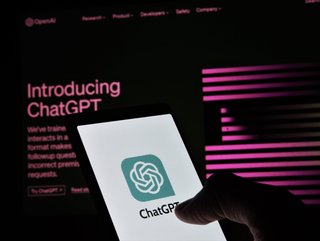ChatGPT turns one: How AI chatbot has changed the tech world

From the launch of GPT-4 to ChatGPT Enterprise, OpenAI’s ChatGPT has seen plenty of evolution in its relatively short lifespan.
The chatbot celebrates its first birthday today, charting a journey that has fundamentally reshaped our understanding of artificial intelligence and its potential.
Since its launch, ChatGPT has evolved from a novel experiment in AI language processing to a widely utilised tool across various sectors. This remarkable journey began with its ability to engage in human-like conversation, a feature that instantly caught the imagination of the public. Over the last year, ChatGPT's capabilities have expanded, encompassing not just conversation but also providing assistance in creative writing, technical problem-solving, and even language translation.
ChatGPT: Bringing generative AI to the public’s attention
At the start of 2023, the chatbot was setting records for the fastest-growing user base in history. It was estimated to have reached 100 million monthly active users at the start of the year, just two months after its launch, making it the fastest growing consumer application in history.
The chatbot has also continued to evolve, with OpenAI introducing new features that users and businesses can use to their own advantage. For instance, ChatGPT’s new voice capabilities ensure that the AI can interact in conversation, answer follow-up questions, admit fault and reject inappropriate requests.
One year on, ChatGPT has brought generative AI to widespread public attention and prompted businesses to consider how they would like to invest into the technology. For enterprise use, the chatbot continues to hold huge potential to enhance employee skills and further revolutionise the workplace.
“One year on from its release, ChatGPT has played a major role in bringing Generative AI to the front of the public’s mind, acting as a catalyst for transformation,” comments Aisha Mendez, Associate Partner for AI & Automation at Infosys Consulting UK. “We've witnessed a similar trajectory before with technologies like automation and robotics, ultimately elevating the way we work by automating routine tasks and opening doors to new opportunities.
“ChatGPT is undoubtedly the cause of the recent boom in consumer awareness of AI technology, but the tool itself has helped move the needle of opinion. Many are coming to the realisation that the future of work isn't human vs. machine - it's human and machine, co-creating value in ways we've just started to realise.”
ChatGPT, along with other AI tools, continue to hold great potential to be harnessed by technology leaders. Organisations across all industries are seeking to re-define themselves as software companies transition away from traditional business by experimenting with software-driven transformation.
However, a report found that only 29% of organisations have started to scale and utilise software to drive transformation, with only 5% having implemented fully scaled initiatives. Whilst businesses are increasingly keen to invest in AI software, it appears as though many are currently unsure how to get started.
Dr. Christian Guttmann, VP of Engineering, Decisioning & AI at Pegasystems, says: “Strategic adoption will accelerate when organisations gain confidence in controlling these AI platforms—ones that simplify operations without necessitating in-depth technical knowledge. A paradigm where businesses can effortlessly operationalise AI, supported by teams that ensure smooth integration and maintenance, will be crucial.
“The rise of models like ChatGPT is prompting a reassessment of 'traditional' AI utilisation. Often, projects initiated as generative AI explorations uncover that conventional AI mechanisms—like automated decision-making and machine learning—offer more suitable solutions.”
ChatGPT raises important questions around AI ethics and responsibility
As global discussions intensify between world leaders and businesses over how AI should be regulated moving forward, the public continues to express anxieties over systems like chatbots.
As with any disruptive technology, ChatGPT has raised important questions about ethics and responsibility. Issues like data privacy, potential misuse and the impact on employment have been at the forefront of discussions around AI.
Guttmann continues: “In an era where innovation is paramount, the last year has demonstrated that the surface of generative AI’s potential in the enterprise sphere is barely nicked. Despite the surge in private usage, enterprises are treading carefully, often limited by internal regulations, cultural hesitance, and ethical considerations.
“Yet, amidst this cautious landscape, we observe a burgeoning trend of experimental applications, suggesting a latent curiosity and willingness to embrace generative AI. The real inflection point for widespread enterprise adoption hinges on convincingly demonstrating the business value.
“Imagine applications developed not in months, but days, leveraging generative AI. Such pragmatic outcomes are poised to tilt the scales towards broader acceptance of this transformative technology.”
******
For more insights into the world of Technology - check out the latest edition of Technology Magazine and be sure to follow us on LinkedIn & Twitter.
Other magazines that may be of interest - AI Magazine | Cyber Magazine | Data Centre Magazine
Please also check out our upcoming event - Sustainability LIVE Net Zero on 6 and 7 March 2024.
******
BizClik is a global provider of B2B digital media platforms that covers executive communities for CEOs, CFOs, CMOs, sustainability leaders, procurement & supply chain leaders, technology & AI leaders, fintech leaders as well as covering industries such as manufacturing, mining, energy, EV, construction, healthcare and food.
Based in London, Dubai, and New York, Bizclik offers services such as content creation, advertising & sponsorship solutions, webinars & events






